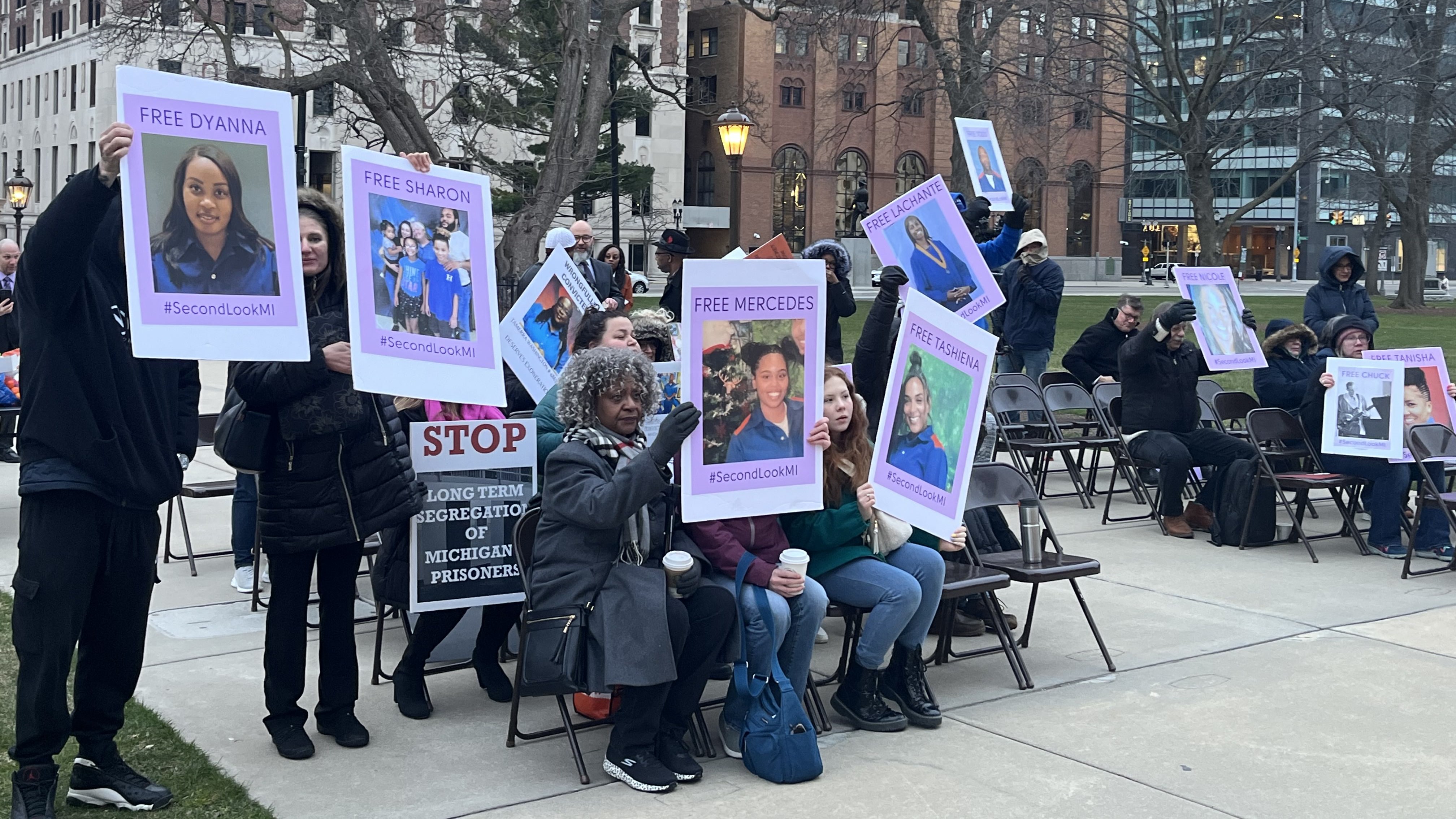
Michiganders rally for Second Look legislation at the State Capitol. Mary Zerkel
Everyone deserves a second chance. Yet in Michigan, thousands of people remain stuck in prison for decades due to overly harsh sentencing laws and judges.
The AFSC Michigan Criminal Justice Program is working to change this. AFSC leads a coalition of 29 groups pushing for Second Look legislation. (See this explainer.) Second Look would allow an incarcerated person who has served ten years to petition the sentencing court to reduce their sentence.
According to Pete Martel of AFSC, sentence length is one of the least effective ways to deter crime. Research over decades suggests that certainty of punishment has a deterrent impact while the length of sentence does not.
Also, incarceration, particularly incarceration of older people, costs money that would be invested more efficiently in directly reducing crime. Finally, as people age, they become increasingly unlikely to commit crimes.
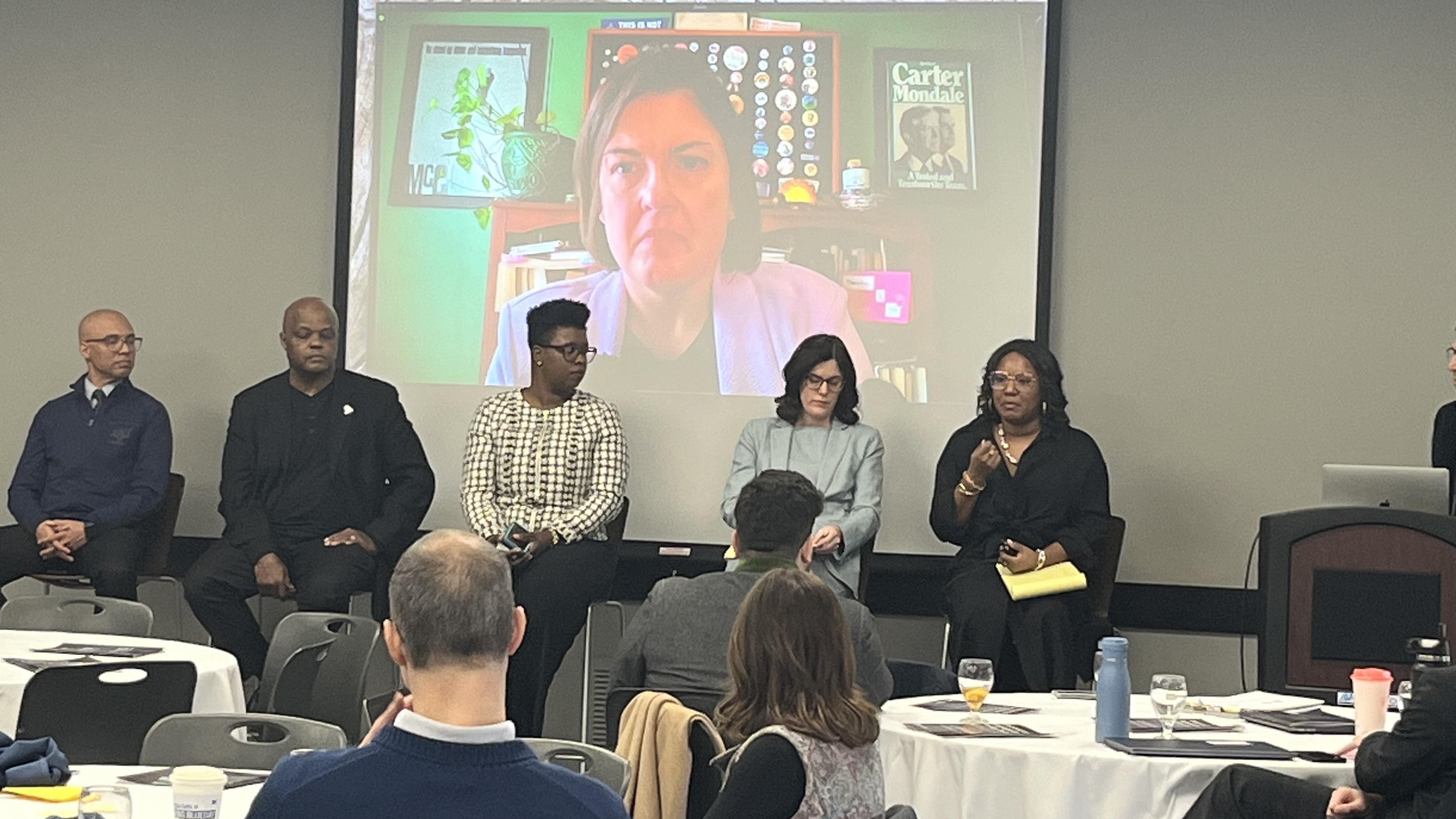
AFSC Michigan alum Ron Simpson-Bey, second from left, joins a panel as part of a Second Look legislative briefing. Mary Zerkel
On March 18, 2024, the Ford School of Public Policy and AFSC Michigan presented a legislative policy briefing on Second Look. A panel of experts – including AFSC alum Ron Simpson-Bey now with Just Leadership USA – shared their support for the legislation.
Current AFSC staff – all with deep connections with people inside prisons -- shared their thoughts, as well.
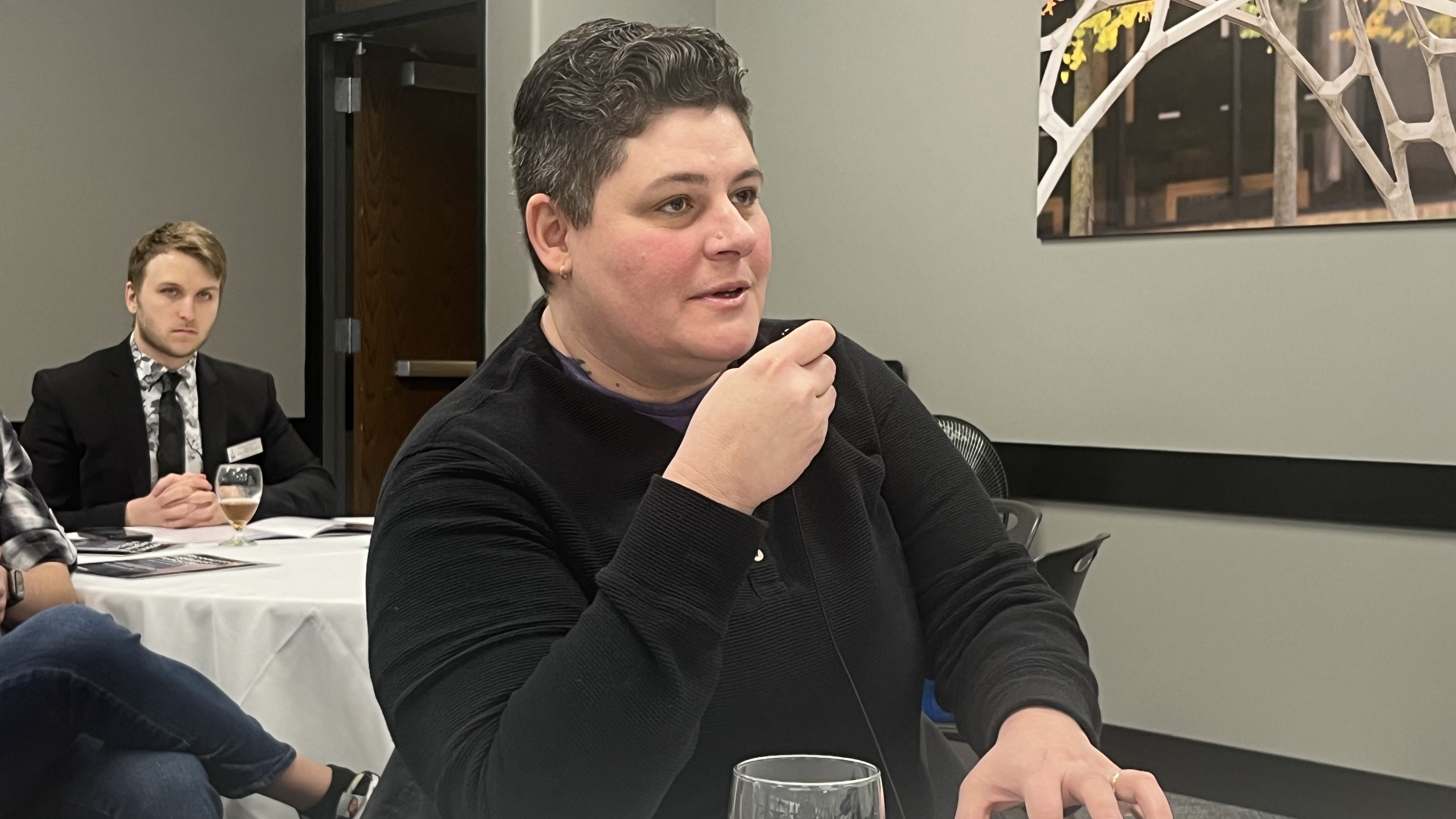
Natalie Holbrook-Combs of AFSC Michigan Mary Zerkel
Natalie Holbrook-Combs (above), whose spouse is in prison, told lawmakers she’s looking for a champion for justice. She reminded people that Second Look is a reproductive rights issue, an LGBQ+ issue, and a racial justice issue. By keeping people locked up, the state is taking away their bodily autonomy and right to choose whether to have children.
Other AFSC staff who’ve served time shared their views.
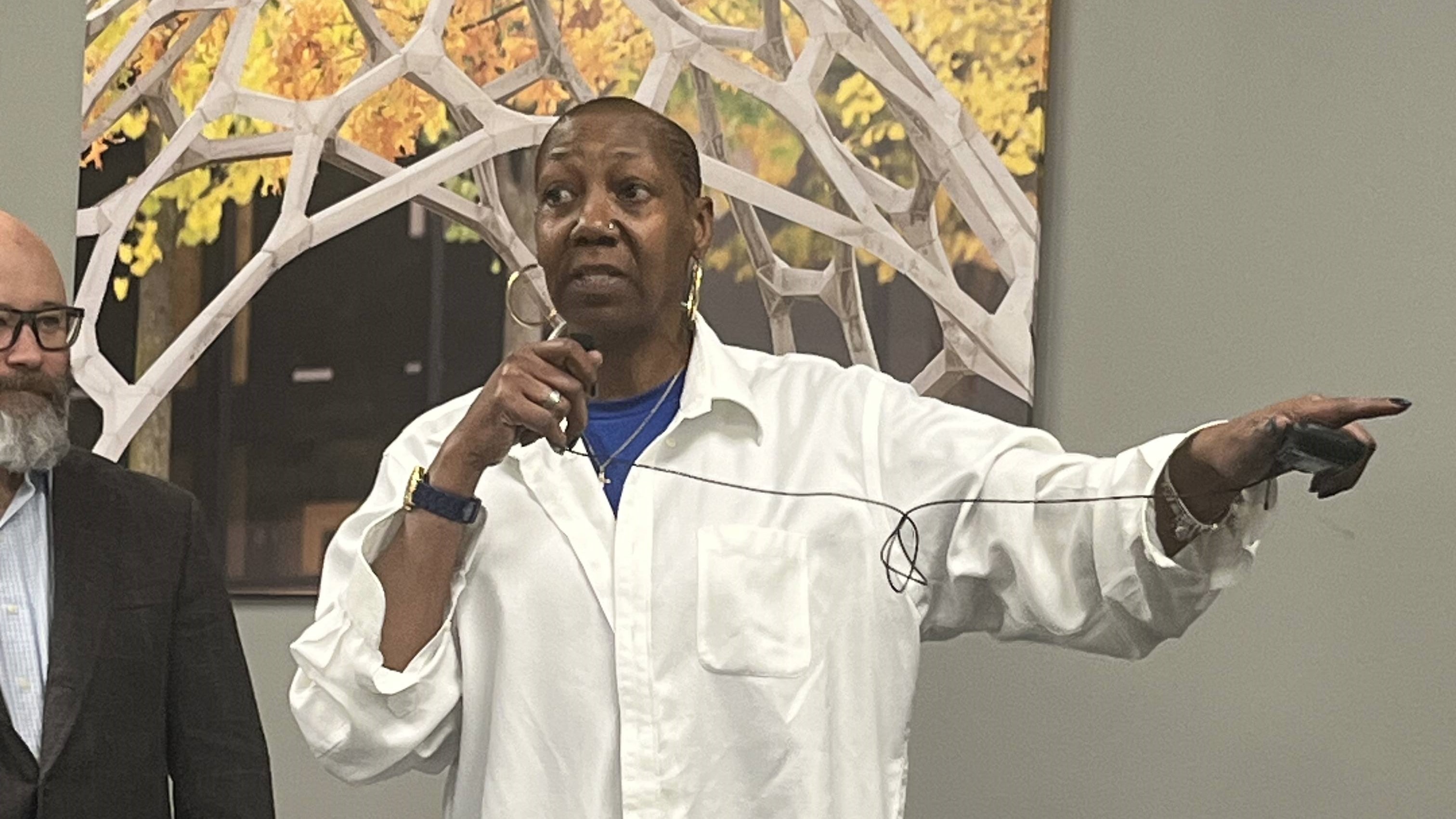
Lawanda Hollister of AFSC Michigan Mary Zerkel
“The reason I support this bill is because of the things I went through at age 17,” said Lawanda Hollister. “They weren’t able to be spoken about when I was tried and sent to prison. This bill gives the judge the opportunity to look at what was not able to be looked at then. And the change that could have possibly happened in the person during incarceration.”
Lawanda added: “I truly believe in second chances. Just take a look. It doesn’t mean everyone would get out right away. But just take a look. Judges will ask the victims how they feel, what they think about all of that. It’s not a free for all.”
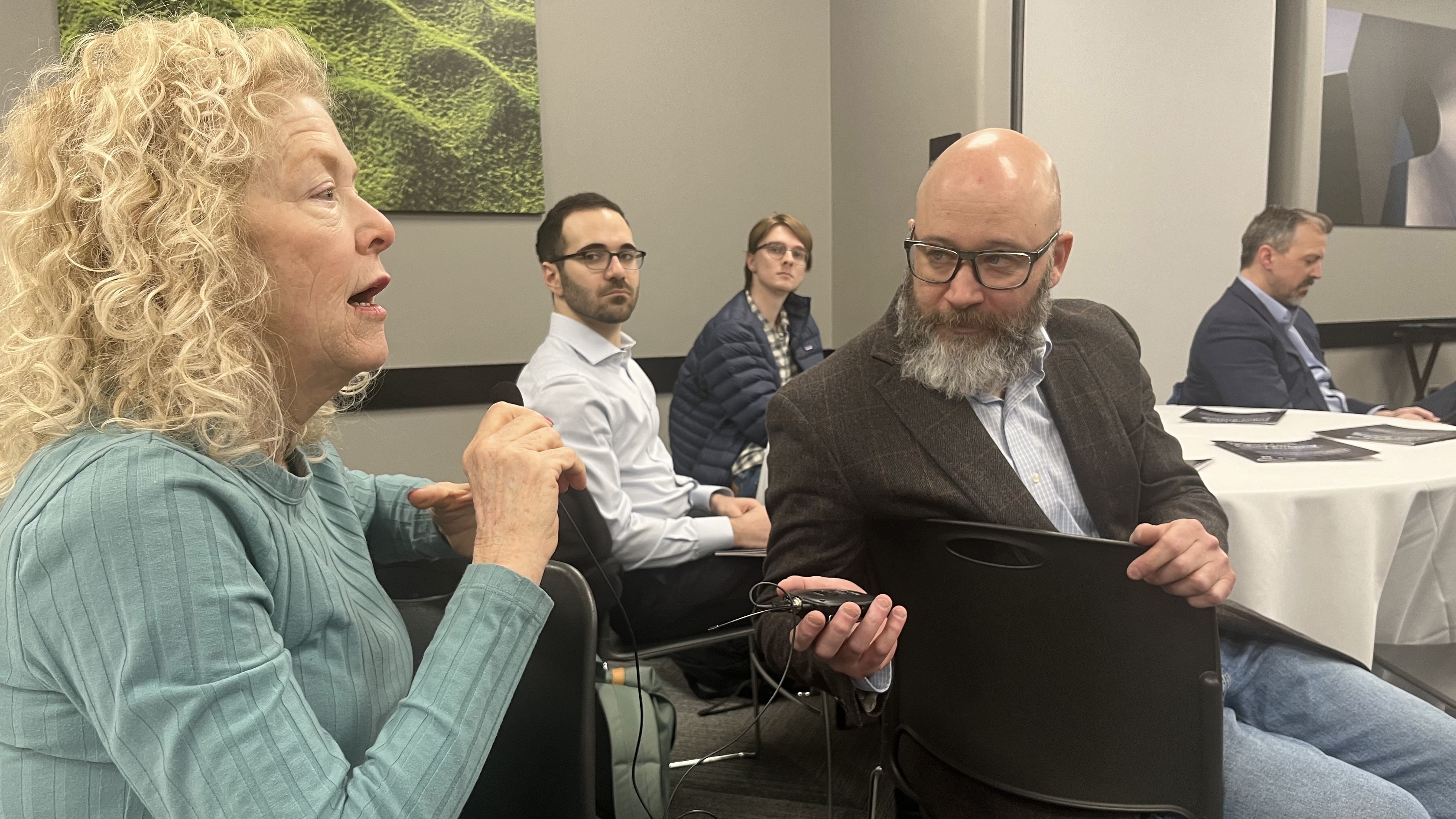
Pete Martel of AFSC Michigan, right, with Lu, a participant at the Second Look legislative briefing Mary Zerkel
Pete Martel, who is also formerly incarcerated, said, “Second Look is not for the worst-case situations. It’s for the best-case situations. Michigan leads the country in incarceration rates right now because of our judges, to a large extent. We don’t have a bunch of easy judges here. Our judges sentence people really harshly.”
He added: “It’s the same judges who’ll go back and reconsider things [under Second Look]. They won’t be freeing people left and right. It won’t be: ‘You’ve served enough time, get out of here.’ Someone will have to come in and prove to the judge that, first, I’m worthy of a sentence reduction to some extent.”
Pete concluded, “It’s not bringing everyone down to 10 years. It might be bringing someone who’s got 50 years in on a Life Without Parole sentence down to 40 years. It’s just giving judges the tools to search for and look at the best-case situations.”
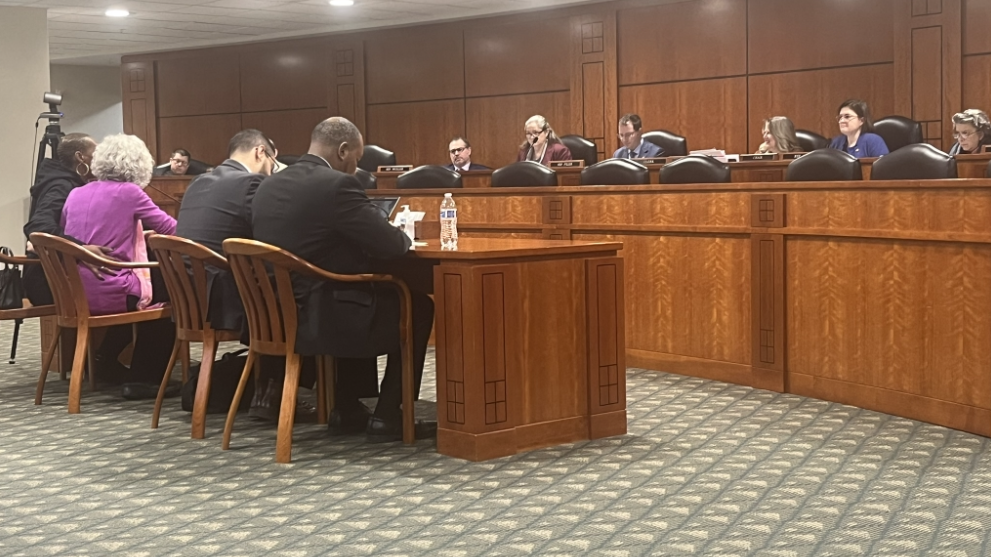
Michigan House Criminal Justice Committee meeting on Second Look legislation Mary Zerkel
The day after the briefing, advocates rallied outside the Michigan State Capitol in advance of a House Criminal Justice Committee meeting that addressed the bill. See this news coverage for more.
In related work, AFSC is hosting commutation trainings and Second Look info webinars for women, trans folks, and people with loved ones inside. The sessions help people learn more about long sentences and how they impact women and non-binary people in Michigan. They support people in getting more involved in working for liberation and healing for our communities.
As the legislative process moves forward, AFSC and partners will continue to use creative ways to keep up the public pressure for Second Look.
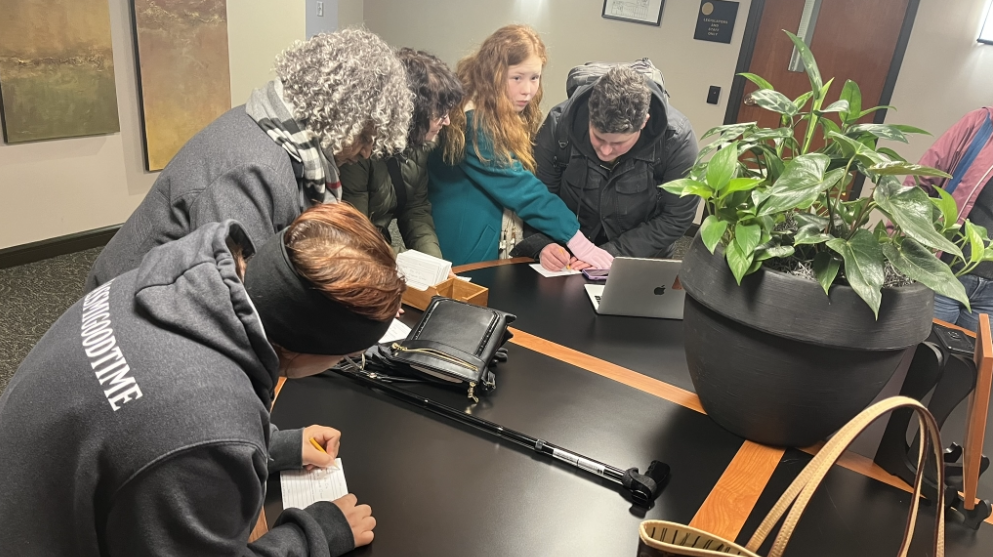
AFSC staff, family and partners sign cards encouraging the passage of the Second Look sentencing act. Mary Zerkel